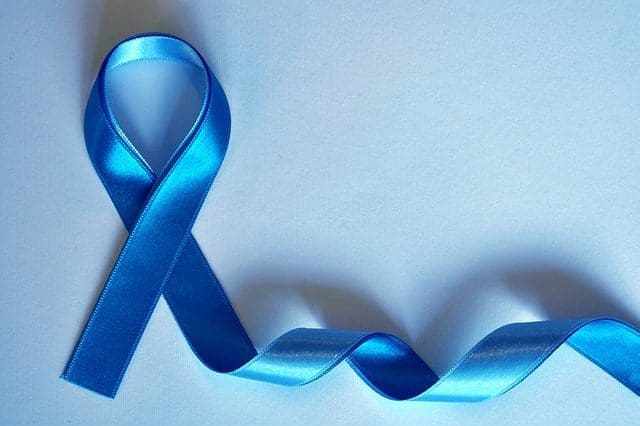WHAT YOU NEED TO KNOW ABOUT PROSTATE CANCER

The prostate is a gland in men which helps make fluid to carry sperm. It sits underneath the bladder and surrounds the tube that carries urine out of the body.
What can go wrong?
Just like any other cancer, sometimes the cells in the prostate can grow uncontrollably this is known as prostate cancer.
Who is at risk?
• Men and in particular those above the age of 50 and are at higher risk.
• Family history of prostate cancer or breast cancer because it means you are more likely to inherit the mutated gene.
• Recent research shows a link between obesity and prostate cancer.
• Obesity and poor diet
• Poor lifestyle decisions e.g. not exercising
Prostate Cancer in Kenya:
In 2020, The Global Cancer Observatory reported a total of 3,412 new cases of men diagnosed with Prostate Cancer in Kenya.
The exact number of people living with prostate cancer in Kenya is unknown as so many people are not screened for it as they show no symptoms.
When can you see symptoms?
You will start to see signs when the cancer presses against the tube you urinate through but when you will see symptoms depends on where your cancer has started growing in the prostate.
Symptoms are:
• Needing to pee more frequently.
• Difficulty in starting to pee.
• Long time to pee.
• Weak flow.
• Feeling that bladder has not emptied fully.
• Blood in urine or blood in semen.
When to see a doctor?
If you have any above symptoms bring them to your doctors’ attention.
Diagnosis for Prostate Cancer
Screening for Prostate Cancer is done through these 4 common ways;
• Urine sample to check for infection.
• Prostate-Specific Antigen testing
• Digital rectal examination
• Biopsy to diagnose prostate cancer.
Further testing for advanced prostate cancer could include an MRI Scan, CT Scan or PET Scan.
Treatment for prostate cancer
The aim is to cure or delay symptoms and prolong life so your doctor will decide what treatment will be best for you depending on:
• The stage of cancer you are on
• Whether your cancer is in the same place or if it has spread to different parts of your body
• The size of the tumour.
• Your general health
Types of treatment:
• Active surveillance and watchful waiting are two approaches to keep an eye on the cancer. If the cancer progresses then other methods for treatment will be recommended.
• Surgically removing the prostate gland is used to cure the cancer if it hasn’t spread very far. However, you will not be able to conceive through sexual intercourse after removing your prostate.
• Radiotherapy uses radiation to kill cancerous cells. However, you should be aware of the side effects that are associated with radiotherapy.
• Brachytherapy is a form of radiotherapy where the radiation is delivered inside the prostate gland. This type of treatment was designed to minimise damage to other tissues.
• Hormone therapy is often used with radiotherapy but it can sometimes be recommended after radiotherapy to stop the cancerous cells growing back by stopping the production or inhibiting testosterone. If Hormone therapy doesn’t work steroids might be used.
• Trans-urethral resection of the prostate does not cure prostate cancer but relieves pressure or any other symptoms you might have with urination.
• High-intensity focused ultrasound is used to treat localised prostate cancer by releasing sound waves to kill the cancer cells.
• Cryotherapy is a method of killing cancer cells by freezing them.
• Chemotherapy is used to treat prostate cancer that has spread to other parts of the body. It does not cure cancer but can keep it under control. However, there are side effects.
How can you help yourself?
• Do annual screenings for prostate cancer. Book an appoint with our partner doctors at My Health Africa or call 0705 -110011 to speak to a medic
• Find out more about your treatment and side effects from your doctor
• Aim for a healthy diet and exercise regularly
• It will be a very hard process, so find someone to talk to.
• Ask your doctor if there are any groups for support.
References:
(1) https://cancerresearchkenya.org
(2) https://gco.iarc.fr/today/data/factsheets/populations/404-kenya-fact-sheets.pdf
(3) https://www.sciencedirect.com/science/article/pii/S0749208111000660?casa_token=ubuP0UcpkWMAAAAA:PXG6BSl_bUxAH29cdzEjIEFpjfrlNXoa9UMb6-EY71eO6KDv3QPfHtP8IYN9Bk7AlH_OVPu3U08
(4) https://link.springer.com/article/10.1186/s40659-017-0140-9
